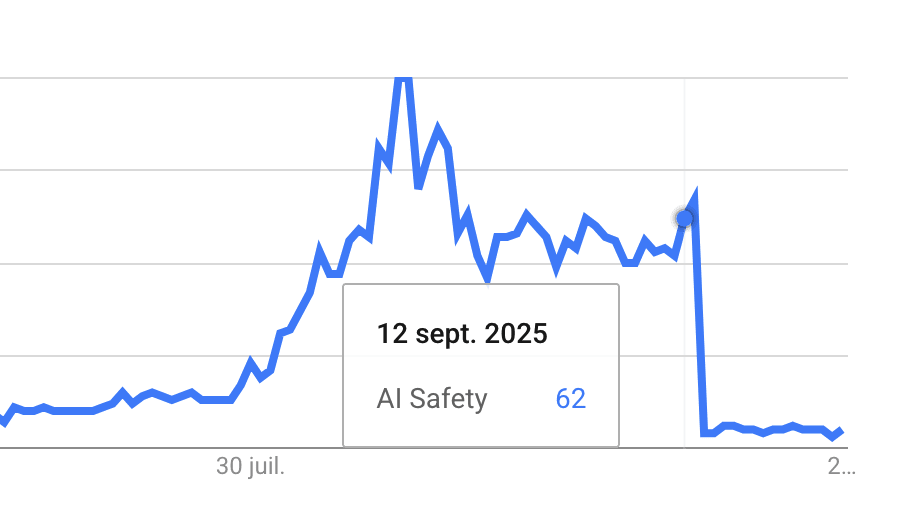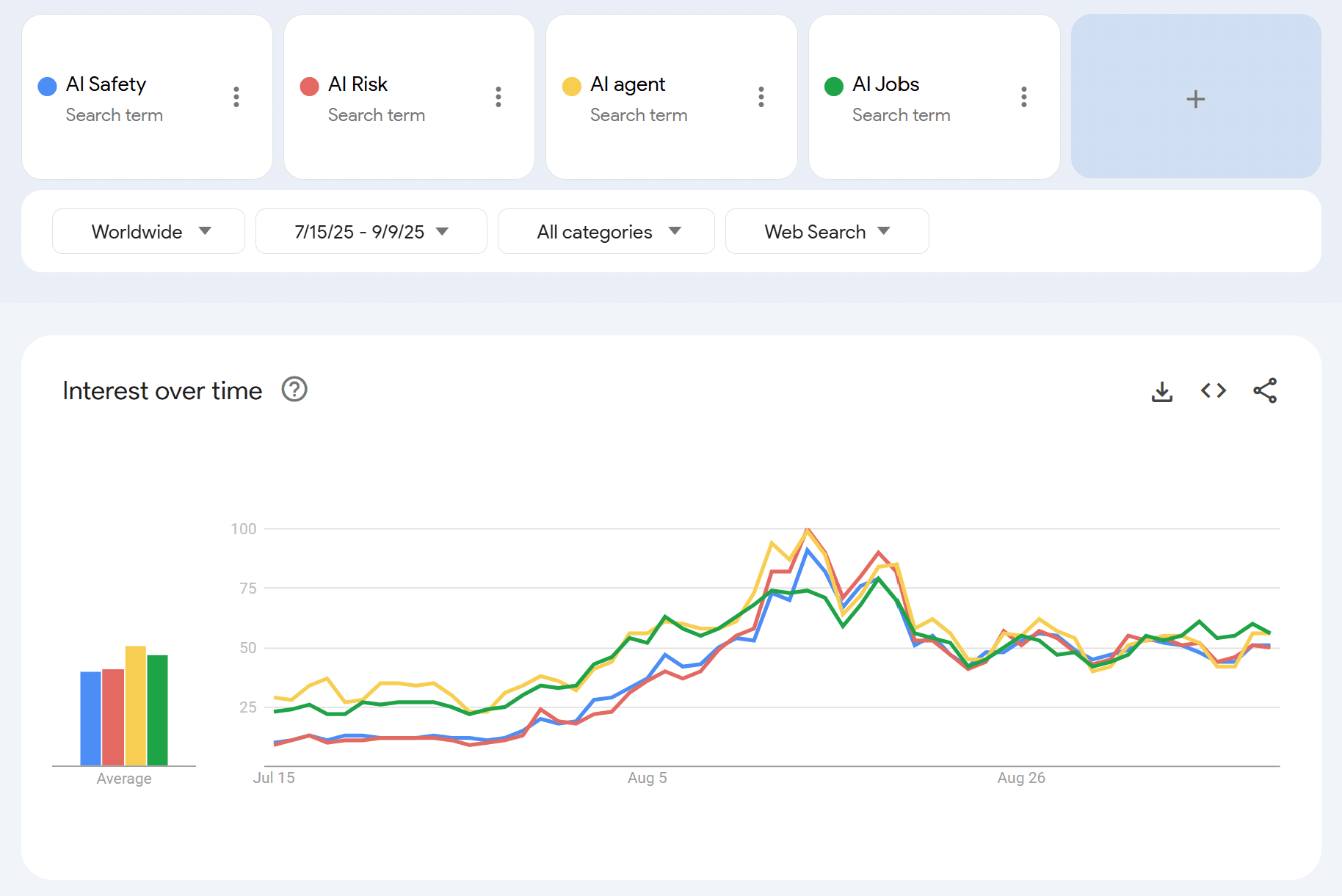Camille's Quick takes
By Camille @ 2023-10-15T09:33 (+2)
nullCamille @ 2025-09-08T15:15 (+21)
Point of confusion:
I sometimes see linkpost or reposts on the forum, where I think to myself:
1-...is the person who's posting standing by and defending what is said? Why are they posting this? Why don't I have more context or commentary? If you do these sort of posts, what's your rationale?
2-I sometimes disagree or think the epistemics are bad or the content of the post is clearly corroding the forum's norms (often but not always hooligan-ish). I want to downvote them as hard as if they were genuinely written and endorsed as an EA forum post with an EA public in mind, despite the fact they're presumably subject to softer moderation rules, and despite the fact that even my best criticism won't reach the author if it's a repost. Am I alone in thinking I'll downvote anyhow and would encourage others to do so, in this context? If you disagree, what's your take?
Aaron Gertler 🔸 @ 2025-09-09T19:18 (+19)
I can speak only for myself, but I treat linkposts like any other post unless the poster provides additional context.
I've linkposted many things I thought were flawed in some respect, but still worth sharing and contemplating; if someone disagreed, I'd want them to downvote me for my poor judgment.
Camille @ 2025-09-28T16:15 (+5)
There seems to have been a surge for interest in AI Risk and Safety culminating on August 14th, far surpassing all other levels of interest in time.
I'm not sure what caused this. [Update : the EU Code of Practice ?] Google Trends lists seemingly topic-specific points (the "chain-of-thought as a fragile opportunity" paper from different AI Companies, an apparent interest in China about AI Safety) while one could intuitively bring up events that happened over the summer (several papers, the suicide case, etc).
Tobias Häberli @ 2025-09-28T18:25 (+2)
Trend stayed ~4x higher than previous. My guess is the drop after 13. Sept. is due to data collection.
Could it be due to "If anyone builds it anyone dies"?

Tom Dugnoille🔸 @ 2025-09-29T18:52 (+1)
It seems that this is - at least partially - explained by the general AI trends (non-safety specific)

Camille @ 2024-02-01T12:45 (+3)
We should prepare for a hypothetical generalized EA-bashing.
As time goes by, we should expect EA to be the target of more and more criticism. More than that, we should probably also plan for spans of time during which EA will be, by default, considered an evil thing. This line of scenario does not seem far-fetched to me, as it already seems to start concretizing itself in France.
We need a plan, it's not costly to build one, and I think that it is plausible enough for EA's reputation to keep degrading in the next three years for time spent on this in local groups to have net-positive expected value.
1-Cultivate resilience
I think that the best thing we can do is to never, never abandon the principles of charitability, respect and rationality that inhabit the EA space. Some people will try to do it, they will try to push us so as to make us angry, to say things that are unwarranted. But we should never commit this crime. Yann Lecun is a good example of how someone can end up exploiting (voluntarily or not) one's anger : on twitter, he's borderline violent, while in real life, he retracts and dicusses calmly. This could manifest itself with violent interlocutors presenting in real life, in front of his calm version, resenting from the near-violence he displayed online. This would be disastrous.
On all sides and with all interlocutors, even the most abhorrent ones, we should strive to be calm and respectful. I think that Eliezer Yudkowsky's exchanges with Yann Lecun are, sadly, an example of the opposite happening. Maybe Eliezer sounds like a calm person to you -but I can very easily empathize with Lecun on why his replies sound arrogant and dismissive. You cannot say the same about someone like, e.g., Anthony Magnabosco, which is a better model to strive towards in this setting (I'm not talking about the method but the general tone and gentleness).
2-Do not loose the purpose.
Something worth noting is that, as EA is going to be the center of many critiques, some of them might have a point. We should always keep a clear eye and remember ourselves that what we're trying to do here is to have true beliefs and act morally. If someone is stating « A », you should not be stating « not A ». You should, instead ask yourself, « What kind of evidence is more plausible given that A is true than given that A is false ? Does it exist ? ».
Ideally, you'd want the observation of a third party to be :
« Wow, this person seems mad and angry, yet the EA in front of them is so nice, constructive, respectful and empathetic. Maybe EAs are wrong, but you should admit that they're outstanding conversation partners. »
3-Know when to answer
I think that the biggest blindspot as things stand right now is that no one has a clear model of when to answer. Normally, we shouldn't be going only with our gut instincts about this. There is surely a certain amount of data on when, what and how to answer to false statements. What is important to know is also conditions in which not answering is clearly a dominated move. In some circumstances, someone can avoid answering because the point is unimportant, unconsequential, and it would basically just be polluting the debate (say, a flat-earther disagrees with an astrophycisist. There is something more important to be done). But sometimes, someone can avoid answering because the point is completely right (say, a flat-earther that has just been debunked by an astrophycisist, because they know they'll loose).
I think that EAs have no idea of what the public perceive as each non-answer comes by. Does the public think that EA is admitting being wrong and pretend ignoring it, or that it means the critique is ridiculous ? No one knows, yet we should make an effort to know.
4-Know how to answer
If someone is angry, we should listen to them and help them calm down.
One of the biggest mental blocks I meet when I talk about answering critiques is the presumption that it has to be a rebuttal, or even, a four-page-long debunking published in the Times. It doesn't need to be. There exist several evidence-based techniques that are quite apt at managing tense situations and none of them imply active counterargumentation, nor publishing in mass media. They even actively recommend not to do that. It can sometimes be as simple as sending a DM and offerring to meet, or check that you have understood them well. I think a lot more people should consider aligning a large margin of their interactions with these models.
5-One failure and we're done
I think it is acceptable to lend some probability to the fact that, if EA is generally perceived negatively in one powerful country, then it is enough to hamper all efforts in EA-related topics, specifically because they require so much coordination. Currently, France is headed towards becoming an Anti-Safety hub. Many people in the US might think that this is inconsequential, but remember that it doesn't take more than one country refusing to slow down AGI progress to bring back the race on a global scale, and it doesn't take more than one powerful country refusing to ban gain-of-function research to give reasons for foreign countries not to ditch their lab. If the world was to meet in order to sign a convention on AI Safety, I currently expect France to refuse signing it, or negotiate over it until it's useless, or even consider it as a hostile and unfair proposal.
More than that, since tense disucssions are hugely more mediatized than calm ones, I suspect that it wouldn't take more than a 1:20 ratio of bad discussions to depict EA in a very negative light, possibly even less.
6-Summary : See yourself as a peace moderator
The coming times might turn out to be dark. Please, do not let yourself merely counter-argue on social media. You should engage amicably, and genuinely discuss whether their hypothesis is right, how to test that, and build friendly and trustful bonds with them.
Camille @ 2023-10-15T09:33 (+1)
AI Safety Audience Dialog Initiative : Call to Alpha-Testers
AISADI is a potential online program aiming to teach effective discussion techniques to AI Safety workers in order to handle disagreement effectively.
The program is currently at an alpha stage but it requires testers, both for knowing the length of the program (estimated 1h30) and measuring whether its effects are significant. The test will consist in following a presentation and completing exercices about various conversational methods. If interested please consider emailing camille.berger@psl.eu. Your help will be incredibly appreciated !
FAQ :
1-What is AISADI, exactly ?
AISADI aims to teach conversational methods that improve epistemic rationality and rapport, e.g, relying on Street Epistemology, Deep Canvassing, Cooling Conversations and Principled Negotiation. However, this teaching is to be delivered through a Deliberate Practice framework, with timely, feedback-filled exercice.
2-How developed is the program ?
The program consists in an introduction to the general phases of an effective dialog as well as fast-feedback exercices. On the beta stage, the exercices will have been selected for their effectiveness and discussed with scientific experts of each of the techniques.
3-Is it manipulative ?
No. The program will eventually be open to all sides on the AI Safety debate, its goal is to maximize espitemic rationality for the time of the discussion, on the topic of the discussion. I believe this requires a good handling of rapport, which in turns requires the technique to not be manipulative.
4-Why do you want to do this ?
With AIS becoming mainstream, I believe that good skills for interacting with non-rationalist, non-EA people and yet having a rational discussion are soon to be required for a very wide proportion of AI Safety workers (rather than a few communicators), and that the community currently lack those skills.
5-Why "potential" ?
The program will be subjected to funding and evaluated empirically. If the empirical results are not convincing, or that funders identify a core issue with the program, the program will be abandonned.
6-Is this massive outreach ?
No. The program aims for AI Safety workers and teaches them to respond accordingly to live, non-mediatic criticism, not to outreach for sensitizing people on AI Safety.